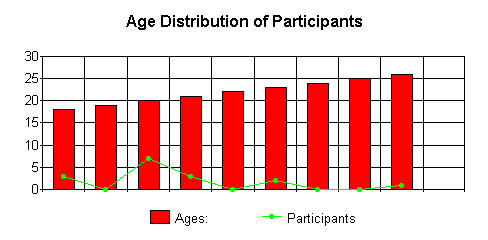
Born in U.S: Yes-13 No-3Siblings: Yes-16 No-0
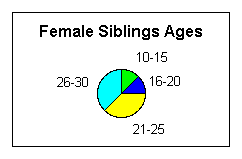
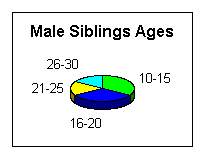
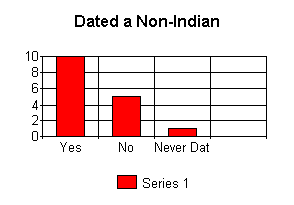
Marriage: All participants want to get married.
Marry an Indian: Arranged Marriage:
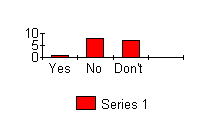

Traditional: Active:


Experienced Sexual Discrimination:

Discussion:
It was interesting to note the distinction between certain results from this survey. All of the participants have siblings which was important in determining the closest possible sense of cultural gender bias, the family. In traditional Indian societies women assumed subservient roles. Over the past few decades they have been struggling to gain more rights. Today, they have developed into a strong class of hard-working, educated, and career orientated women. Their families are supportive of their choices and are willing to help them in any way needed. Although some women still come from traditional strict households, they have accepted their roles and feel comfortable in their decisions or lack thereof.
The question concerning dating suggested some Indian women as limiting their options to Indian men. It seemed sad that they would choose traditional values over their own happiness. One woman is actually being forced to choose between her family and her own happiness. If she chooses to marry a non-Indian, her family will never speak to her again. Therefore, she has accepted her familyís wishes and will marry an Indian. It should be noted that she does not view this requirement to be a big deal or sacrifice. So long as it will make her family happy she is more than willing.
The idea of arranged marriages was also proposed as a question. This is one aspect of Indian culture that has become less traditional. These days the perspective individuals are given a chance to meet and decide if they like one another. Although certain parents are still traditional and desire their daughters to marry of the same class the women seem unaffected by this notion.
When evaluating the results of the question concerning arranged marriages it was surprising to see an even split amongst those surveyed. Those women who said that they would accept an arranged marriage felt happy to have someone help them out. They realize the difficulties of dating today and would be appreciative of the help and the new relaxed fashion. The young women who said they did not want an arranged marriage wholly agreed that their parents would be satisfied with whomever they chose. The desire to find love over a cultural bond was noted by one woman as being "Americanized." This term introduces possibility of conducting a future survey on the question of whether immigration induces the loss of traditional cultural values in regards to first generation born Indian-Americans.
When asked if the women viewed themselves as traditional, majority were inclined to say yes. It seemed important to note that when asked if they had experienced or witnessed sexual discrimination within the tradition, majority said no. Also interesting to these findings is the fact that majority of the women are becoming more active in the Indian community. From these three findings we are viewing the growing strength of women. Although they are maintaining their traditional values, they are progressing with active voices in the community.
Conclusion:
This survey did in some ways support my hypothesis. Although Hinduism has modernized in certain ways, women are still being forced to assume traditional roles. Even though this appears to be the case, some women are satisfied with this decision. Some females are choosing to take a stand against traditional values while others are accepting them. Given the fact that overall Indian women appear to be receiving more equality, there is always room for change. Traditional values should be maintained, but not at the expense of an individualís own happiness.

![]()